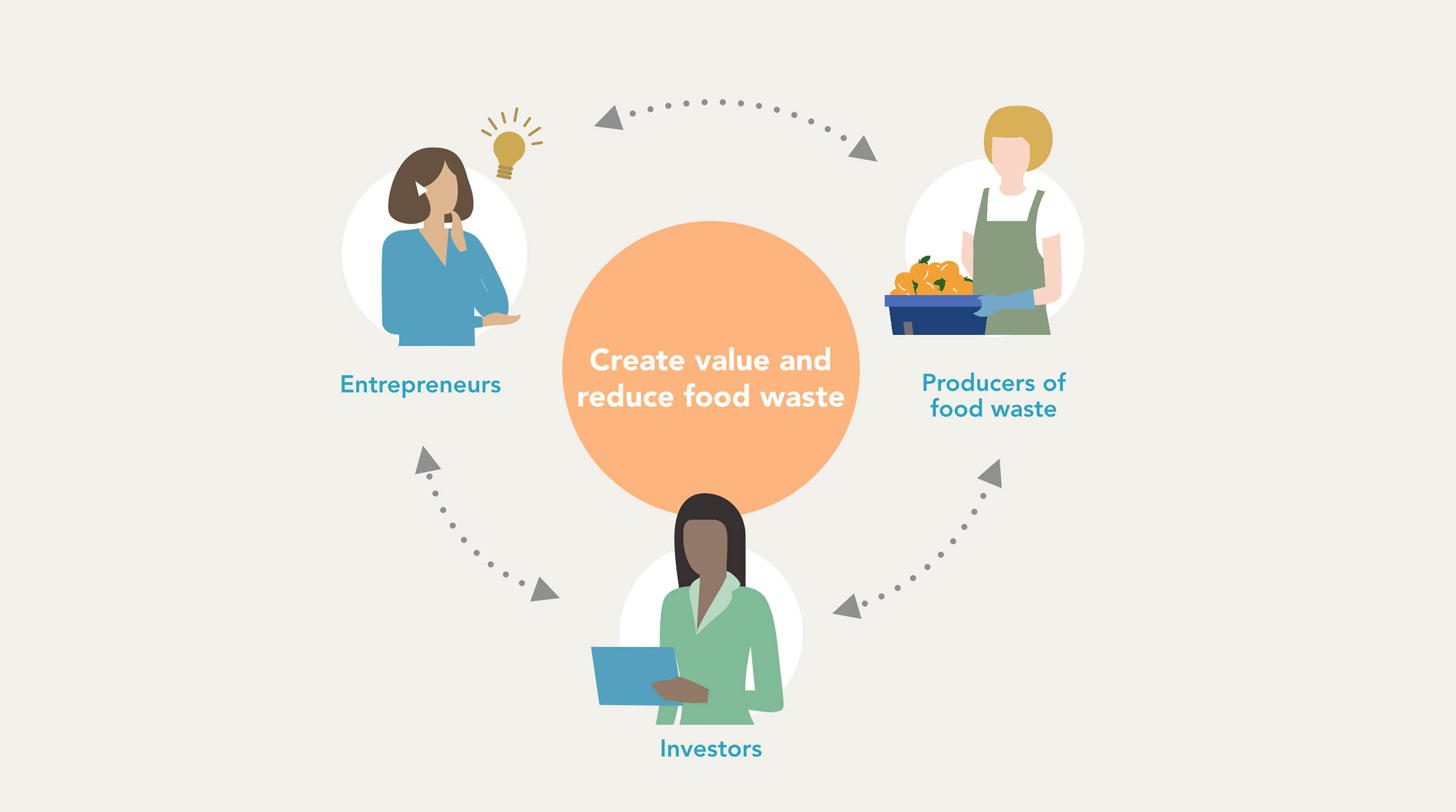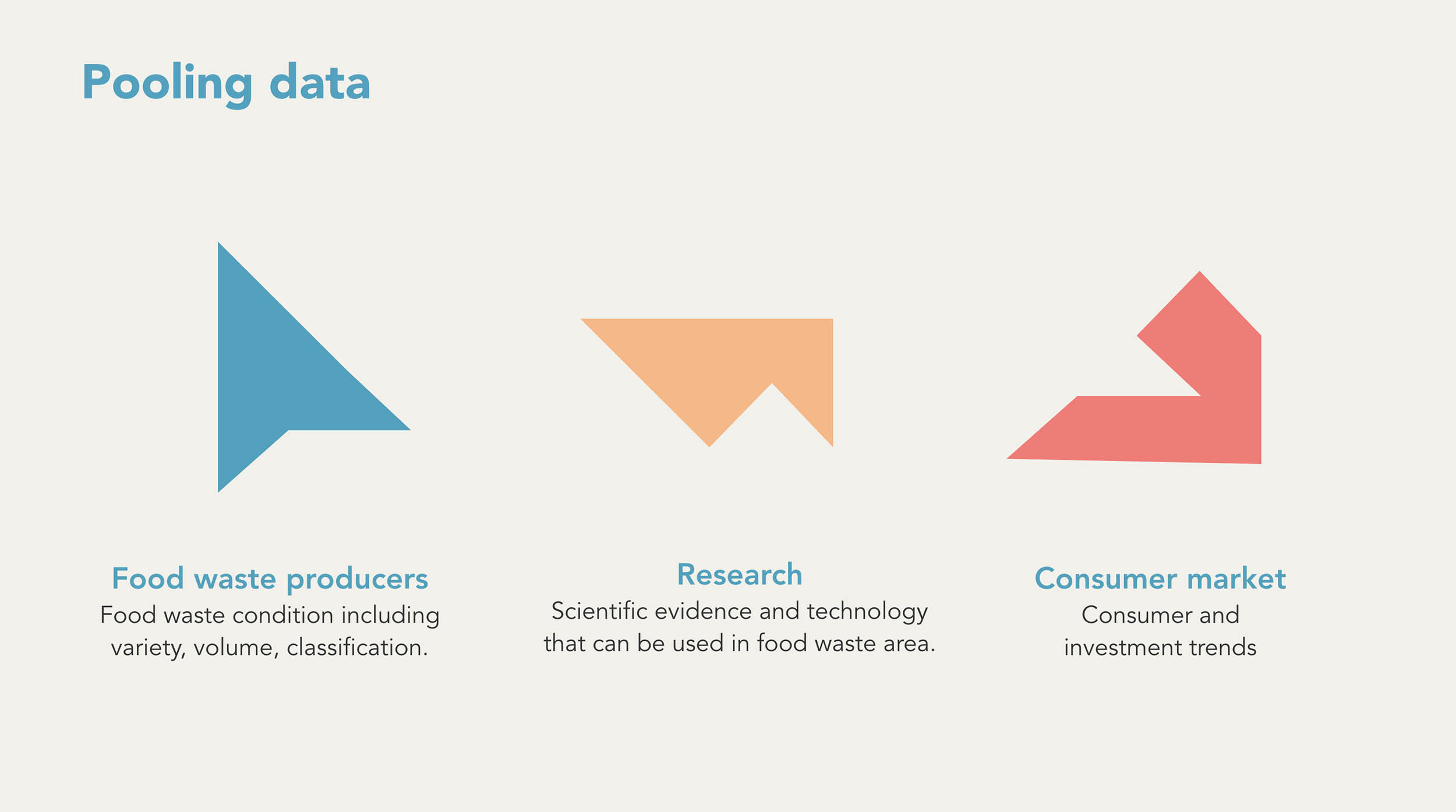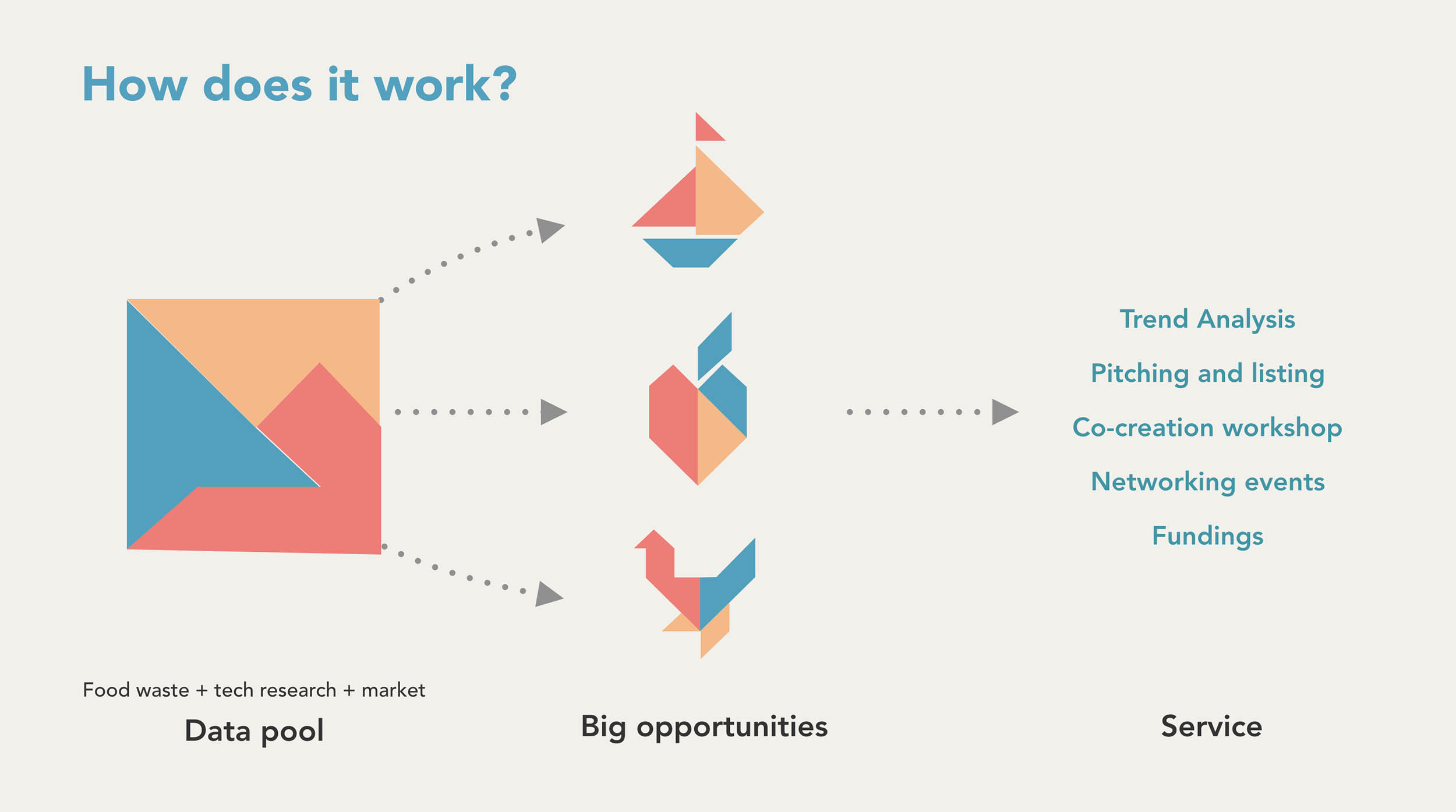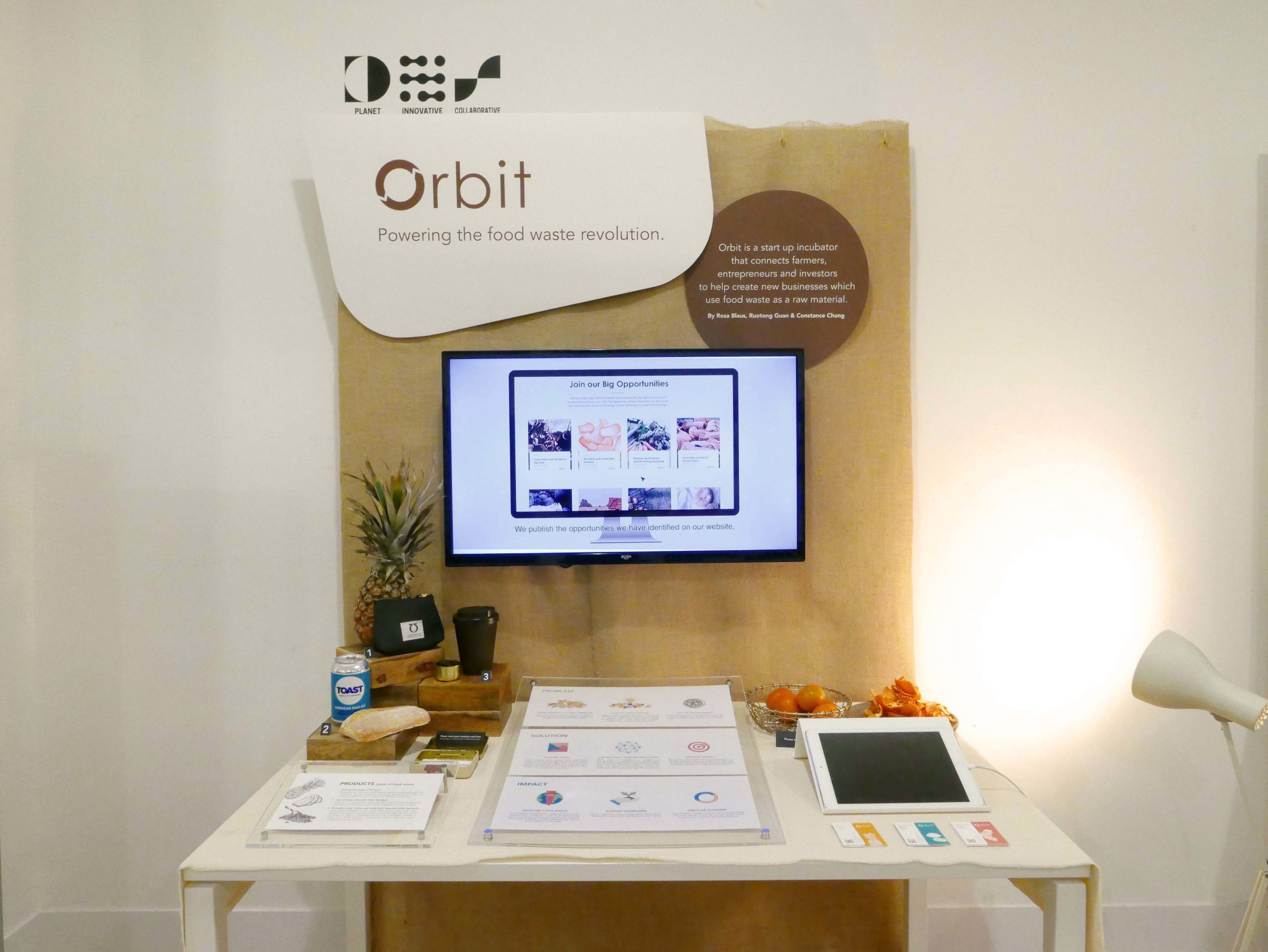Powering the
food waste revolution with data
SERVICE DESIGN / BRANDING / ANIMATION / EXHIBITION DESIGN
Royal College of Art partnered with Planethon, a Swedish tech company, to look at how to make business models more sustainable. Our team is interested in looking at businesses along the food supply chain. We found that food waste has a huge impact on our planet economically and environmentally.
CHALLENGE
Create a service to provide solutions to reduce food loss and waste on the pre-farm gate
SOLUTION
Orbit a data driven platform helps to identify opportunities in food waste for entrepreneurs, producers and investors to build green businesses
My role
I contributed to the research process, gathering insights from primary and secondary research, visited various markets and spoke to industry players to have a deeper look on their process flow and pain points. I created the brand identity, managed the presentation deck's consistency and created the animation to showcase the product concept. I also designed our project booth in the “Work in Progress Show” at RCA in 2020.
Research
Secondary research
Globally, around a third of food is wasted. Currently, food waste (includes over production and imperfect food) is mostly dumped into landfill or being used as animal feed. According to the food waste hierarchy, ideally food should not be wasted, it should be used for human consumption.

From the Key facts on food loss and waste, Food and Agriculture Organisation of the United Nations, we learned that vegetable and fruit have the highest wastage rates, 45% of all fruit and vegetables produced are wasted. We also discovered that there are only a few existing solutions for food waste at the pre-farm gate.

Primary research
We observed different markets and different business models, speaking to industry players, research experts and a successful startup to understand the usual practice, pain points and barriers. From our observations and interviews with the industry players, we found the key pain points and barriers of farmers and buyers as follow:
1. Insufficient recycling options on pre-farm gate
2. Transportation and storage constraints
3. Safety and regulatory concerns
4. Lack of transparency in the supply chain
5. Over produce on farms need to meet market needs and standards
“The main obstacle for us is transport – we don’t have the capacity to take our products to more than one place.”Farmer in South Kensington farmer’s market
“The biggest problem is the availability if the store needs 5, but the supplier only has 3, that would be a problem.“ Wholefoods staff
“Food safety is really important for us, and it can be difficult to change suppliers due to complicated procurement processes.” RCA canteen manager
“Transparency in the supply chain is a problem.”
“At retail level, large quantities of food are wasted due to quality standards that over- emphasise appearance.” Dr Liz Goodwin, OBE, CEO, WRAP
Mapping
After gathering data and findings from research, we started to map out the problem and opportunity areas in the food supply chain, and identified the most powerful point for Planethon to make the biggest impact in the current system.

Initial Concept
Our initial concept is to build a digital platform to tackle the barriers of farmers and buyers. A platform for farmers to seek buyers for surplus produce, and vice versa. It also provides various options of delivery service, buyers can either pick up themselves or use crowdsourcing logistics or match with farmers’ schedule to handover the produce in the city.
On the Orbit platform, users can also check whether there is storage space for food available nearby. It has the function to check food safety with technology like picture recognition and photonics, surplus produce is classified into 3 classes – class 1 is for retails and restaurants, class 2 is for food manufacturers, class 3 is for making soup stew.

Concept Validation
To validate the idea, we tested this prototype with a few different stakeholders – Tesco, vendors at New Convent Garden and Piñatex who make textiles from food pineapple waste. They suggested that we should
• Focusing on entrepreneurs and start-ups as they are more agile to create new demand and they are more transparent
• Encouraging long-term relationships between food system stakeholders would have a bigger impact on reducing food waste
• Making it open and applicable to as many different waste streams as possible: not only for imperfect food and over production, but also by products too
The Solution
Orbit is a data driven platform that brings together food waste statistics, research and technology, market data and investors to identify food waste opportunities for entrepreneurs, stimulate green businesses for a planet positive future. It collects food waste data, research and market data, categorises them into opportunities. Then the opportunities will be presented on the platform as an open call for stakeholders who are interested to team up and create green businesses.
Orbit powers the food waste revolution
1. Creating new demand by identifying new opportunities
2. Connecting with complementary stakeholders
3. Initiating sustainable partnerships



The Prototype
WIP show project booth

Special Thanks
Carina Johed, Planethon
Elin Green, Piñatex
Fredrik Wikholm, Planethon
Gustav Borgefalk, Royal College of Art
Jordan Lazell, Coventry University
Liz Goodwin, Wrap
Mark Little, Tesco
Our tutor Qian Sun
Orbit was created in collaboration with Rosa Blaus and Ruotong Guan.


